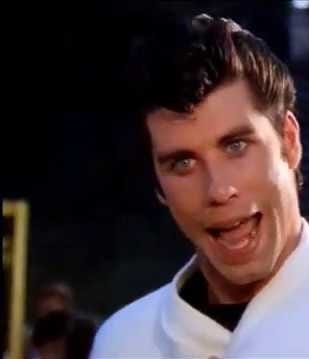I get that shiver up the back of the neck only rarely.
Last night at the Proms, in the last few seconds of Mahler’s 5th Symphony, with the Halle Orchestra, conducted there for the last time by Mark Elder — zing went the string of my spine.
I can’t explain it. I’d been standing among the prommers for an hour and a half. The Albert Hall was very stuffy. A young woman in front of me had fainted, been held up, fainted again during the Adagietto, been led away. The playing had been wonderful.
But this climax wasn’t my favourite bit of the Symphony, which isn’t my favourite piece of Mahler. It was a happy, celebratory, everyone-in-the-band playing high up in the mountains moment, whereas I love the plains of arctic desolation. And yet it gave me the chills, then goosebumps, then a whoosh of joy.
Robert Graves, in The White Goddess, wrote —
A.E. Housman’s test of a true poem was simple and practical: does it make the hairs of one’s chin bristle if one repeats it silently whilst shaving.
Later, he goes on to say —
The reason why the hairs stand on end, the eyes water, the throat is constricted, the skin crawls and a shiver runs down the spine when one writes or reads a true poem is that a true poem is necessarily an invocation of the White Goddess, or Muse, the Mother of All Living, the ancient power of fright or lust—the female spider or the queen bee whose embrace is death.
Which is at least an explanation. (Though not everyone needs to shave their chin. Perhaps it works for legs, too.)
I have a lot more time for Graves, and The White Goddess, than you’re supposed to. The mythological (bad word) research is not reliable; the theory of muse-worship as the source of poetry is innately sexist. But Graves has and gives a sense of depth — depth of time, depth of effect, depth of purpose — to poetry. I would rather what he says than a purely physiological explanation. Poetry is an ancient, mysterious, arcane thing.
If you and I had been standing next to one another, trying to explain what was going on in the Mahler (this bit’s a Viennese ballroom, and oh now we’re back in the Alps), then the chills would never have happened.
Something a person says can give you the chills, and that thing may even be something analytic or critical, but usually you need to be fully absorbed in whatever artwork you’re in the presence of.
The only piece of music almost guaranteed to give me the chills at a particular point is Bob Dylan and the Band’s version of ‘Ballad of a Thin Man’ on Before the Flood. It’s the moment just after Dylan sings —
To give your check to tax-deductible charity organisations.
And the horns and the piano and everything is going.
Again, not my best Dylan, not my favourite song, not my chosen lyrics. There’s just a coming together of certain sounds and vibes that does it for me. Dylan said of the ’74 Tour that the music was ‘nothing but force’. Maybe that’s relevant. Maybe I’m succumbing to something forceful, in both the Mahler and the Dylan.
What’s certainly dangerous is to speak of these moments of spine-tingle in relation to one’s own writing.
But very rarely, they do happen — we have to admit it.
The question is, what do we then do with them? Do we trust them?
If one’s own reaction to one’s own writing — if one’s reaction is, Wow, that just took the top of my head off! — is that any kind of a reliable guide to the effect on the reader?
If you’re taking a Kill Your Darlings approach, then you’d say absolutely not. You’d say that the high-point you’ve just identified, through your body, is going to stick out and unbalance the work. Cut it out and see if you can turn it into a poem. Then chuck it away.
(I’ve always allowed myself one Darling per novel. One sentence I know is probably a little bit too much, but which I’ll permit myself to keep. I do this to make sure I’m consistently putting the other ones down.)
But if the whole point of writing is to enrapture the reader and then cause them to experience powerful emotional stuff, how can you cut something out that’s achieved that for at least one person?
Shouldn’t you instead look to the rest of the work, and see how it can be altered to make the before and after, the build up and drop away, as fitting as it can be?
What about you? What gives you the chills?





The moment 5.40 minutes into Henry Cow's Amydgala where the pace of their Uncle Meat meets Oliver Postgate/Vernon Elliot jazz rock shapings dissolves into a beautiful plaintive wah-wah solo by Fred Frith. I don't do decadism as a rule and am very wary of era specific responses to music (usually tied in with some notion of the writers own youth) but I hear a certain kind of early 70s melancholy in those few bars that are as beautiful as Ravel. They seem to sound simultaneously of their time and totally outside of time.